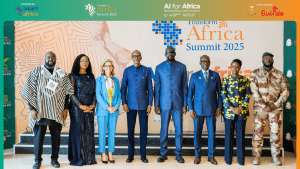Libya’s municipal elections deliver blow to political Islamists

Libya awaits the official announcement of second-round municipal election results, amid signs of a substantial defeat for political Islamists, as reported by The Arab Weekly plus agencies on August 19.
Libya held elections for 26 municipal councils, while voting in 25 municipalities was postponed for security and organisational reasons.
Reports indicate that Muslim Brotherhood-affiliated lists suffered heavy losses, most notably in Zliten, where rights activist Houssem al-Qamati exposed suspicious vote-tampering, allegedly orchestrated by Audit Bureau chief Khaled Shakshak, State Council member Abdulsalam al-Safrani, and the Zliten Security Director Omar Rahil.
In Tripoli, the Brotherhood’s influence was further eroded as the Al-Sariya list secured the majority of council seats.
The National Institution for Human Rights documented violations and suspected fraud at polling stations across Suwani Bin Adam, Hay Al-Andalus, and central Tripoli. The institution called out the High National Elections Commission and the Interior Ministry, urging a halt to the process pending a full audit to restore public trust.
The Government of National Unity reiterated its support for the elected municipal councils, describing them as essential partners in promoting local development and reinforcing the principle of decentralisation.
Dbeibah said: “I congratulate these municipalities on achieving this electoral milestone, conducted in a secure and organised environment,” praising the Ministry of Interior for its contribution to the smooth conduct of the elections without recorded security breaches, emphasising the importance of citizen awareness and determination to exercise their democratic rights.
On July 5th, over fifty mayors demanded decentralisation and proper administrative budgets. They urged legal protections and autonomy to respond effectively to citizens’ needs, underscoring the urgent need to strengthen municipal institutions.
Libya has failed to build coherent local governance since 2011. With Law 59 on governorates never implemented and municipalities overburdened amidst political fragmentation, local administrations operate without clear authority or resources, fueling systemic dysfunction.
The Arab Weekly plus agencies, Maghrebi.org
Want to chase the pulse of North Africa?
Subscribe to receive our FREE weekly PDF magazine














